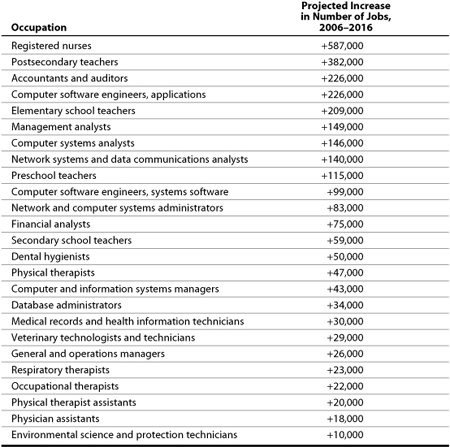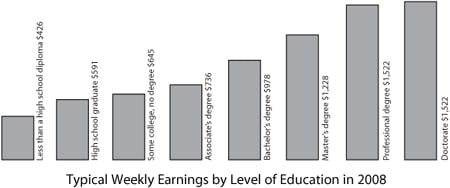Where Can I Find Career Information?
Every other year, the United States Department of Labor publishes the Occupational Outlook Handbook (OOH).
This useful guide describes types of careers, specific jobs, and
information about the training needed for these jobs. It also lists
jobs that are expected to be the most in demand in coming years.
The reference librarian at your school or in
your community can help you find this resource. You can also find much
of this information by computer. The Internet address for the Occupational Outlook Handbook is
www.bls.gov/oco/home.htm
JIST, the publisher of The Kids’ College Almanac, also publishes the OOH, as well as a useful resource called Young Person’s Occupational Outlook Handbook, which is easy to read and describes about 270 jobs.
Some job titles even change their meaning
over time. Today, a network administrator can mean someone who manages
a group of broadcast stations; but it can also mean someone who manages
a company’s computer systems.
The Department of Labor’s home page on the Internet provides links to a lot of useful information about careers. Its Web address is www.dol.gov. The department also has a Web page with links for kids. Its address is www.bls.gov/k12/.
Fast-Growing Occupations

Source: Occupational Outlook Handbook.
How Will Education Affect My Earnings?
Your education is likely to affect your
future income. The more education you have, the higher your earnings
are likely to be, not only in any one year, but over your entire
lifetime.
Income is an important consideration when you
make career and academic decisions. However, it should not be the only
consideration. Quality of life, job satisfaction, work hours, job
stability, where you will be able to live, and many other factors are
also important to consider.
Whatever occupation you choose, if you become
a lifelong learner, you will increase your earning potential and have
more choices and flexibility about how you will make a living. The
following chart shows how your education level can affect your income.
Education and Income

Source: Bureau of Labor Statistics (2008).